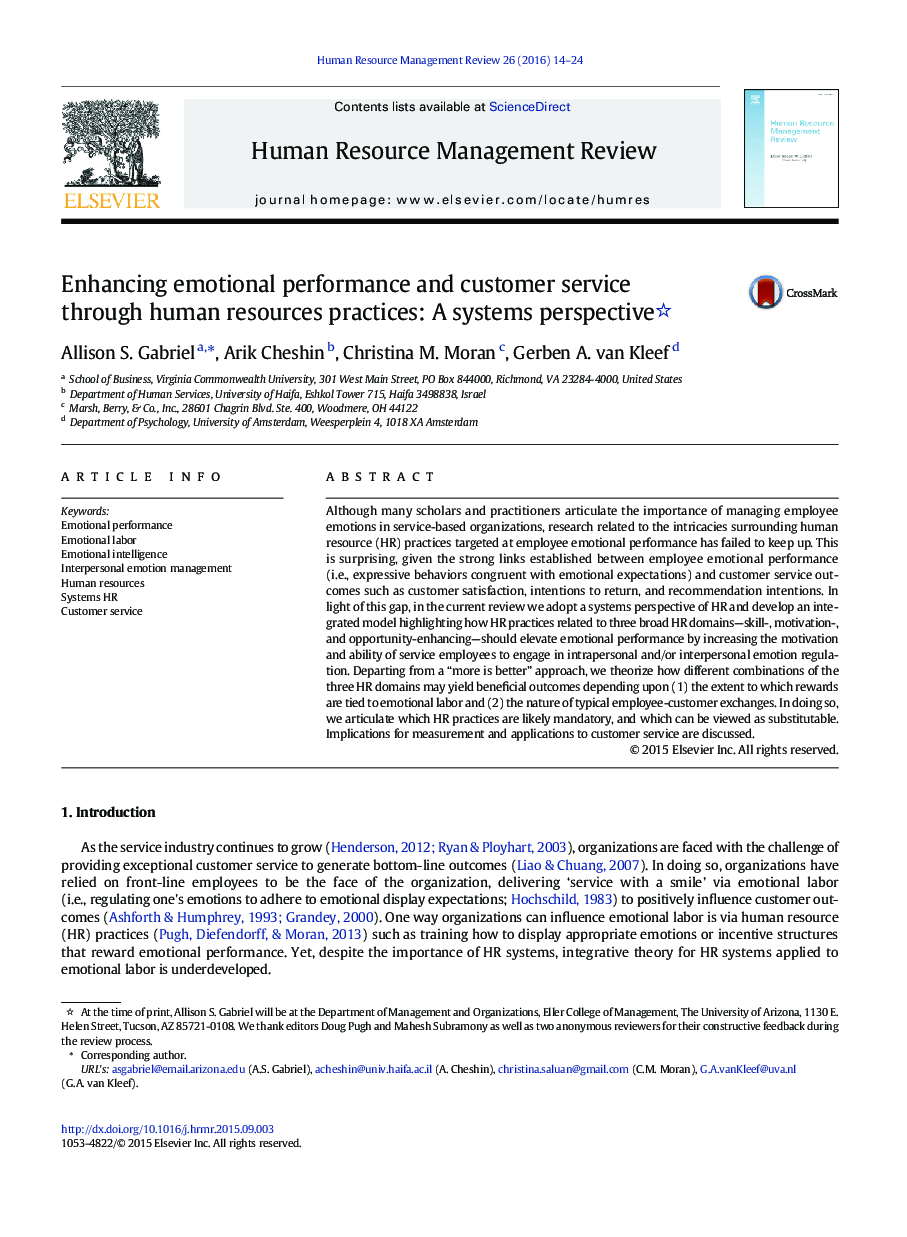| Article ID | Journal | Published Year | Pages | File Type |
|---|---|---|---|---|
| 879612 | Human Resource Management Review | 2016 | 11 Pages |
Although many scholars and practitioners articulate the importance of managing employee emotions in service-based organizations, research related to the intricacies surrounding human resource (HR) practices targeted at employee emotional performance has failed to keep up. This is surprising, given the strong links established between employee emotional performance (i.e., expressive behaviors congruent with emotional expectations) and customer service outcomes such as customer satisfaction, intentions to return, and recommendation intentions. In light of this gap, in the current review we adopt a systems perspective of HR and develop an integrated model highlighting how HR practices related to three broad HR domains—skill-, motivation-, and opportunity-enhancing—should elevate emotional performance by increasing the motivation and ability of service employees to engage in intrapersonal and/or interpersonal emotion regulation. Departing from a “more is better” approach, we theorize how different combinations of the three HR domains may yield beneficial outcomes depending upon (1) the extent to which rewards are tied to emotional labor and (2) the nature of typical employee-customer exchanges. In doing so, we articulate which HR practices are likely mandatory, and which can be viewed as substitutable. Implications for measurement and applications to customer service are discussed.
